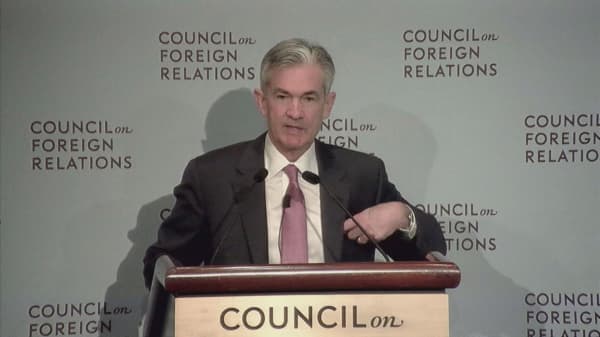Federal Reserve Governor Jerome Powell did it today. Alan Greenspan did it when he was Chairman. Jawboning about Fannie Mae and Freddie Mac. As the Federal Reserve begins to raise short term rates, longer term rates have remained stubbornly low.
The yield curve (the spread between yields of short term and long term maturities) has become flatter. In the early 2000's Greenspan called this a "conundrum" and blamed this aberration on a "global savings glut." His solution was to verbally attack Fannie Mae and Freddie Mac. The "tool" is called "jawboning," and it worked.
Fannie Mae and Freddie Mac buy most of the home mortgages in the U.S. Banks and mortgage companies quote rates, complete lots of paperwork and credit checks, fund a loan at closing, and then sell your mortgage to Fannie or Freddie. The banks and mortgage companies get their money back with a profit and make another loan. Pretty straight forward.
What isn't straight forward is the inherent business risk. Would you loan money to someone you believed trustworthy and financially sound for a few years if they signed a binding contract, paid you interest, and provided collateral? What interest rate would you charge for a 3-year loan, a 10-year loan, and a 30-year loan? Would you be willing to commit your money for 30 years for 4.5 percent?
This is the problem: without a ready and willing buyer of 30 year loans, few if any individuals or banks would make 30 year loans at all, and they would charge a lot more than 4.5 percent. Without the availability of that funding, real estate prices fall because buyers can't get affordable loans. This slows the economy.
When Federal Reserve officials begin to attack these mortgage buyers, long term interest rates begin to rise out of trepidation that they may be serious this time. If you're a part of the Federal Reserve and intent on higher rates, the plan of raising short-term rates, reducing the balance sheet, and jawboning will take rates higher. It will work. The danger is that you get what you ask for and the higher rates cause a fragile economy to stall and go into recession.
Whatever you may think of the economy or the Federal Reserve, make no mistake; Governor Powell's speech in Washington Thursday was not just some randomly timed rant.
Our advice to investors: be fearful when others are greedy.
Commentary by Michael K. Farr, president of Farr, Miller & Washington and a CNBC contributor. Follow him on Twitter @Michael_K_Farr.
For more insight from CNBC contributors, follow @CNBCopinion on Twitter.




